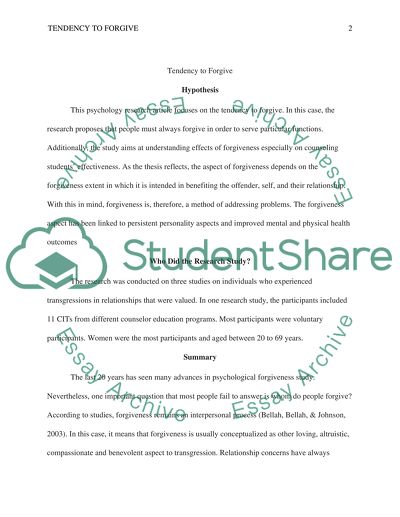Cite this document
(“Tendency to forgive Essay Example | Topics and Well Written Essays - 1000 words”, n.d.)
Retrieved from https://studentshare.org/psychology/1687919-tendency-to-forgive
Retrieved from https://studentshare.org/psychology/1687919-tendency-to-forgive
(Tendency to Forgive Essay Example | Topics and Well Written Essays - 1000 Words)
https://studentshare.org/psychology/1687919-tendency-to-forgive.
https://studentshare.org/psychology/1687919-tendency-to-forgive.
“Tendency to Forgive Essay Example | Topics and Well Written Essays - 1000 Words”, n.d. https://studentshare.org/psychology/1687919-tendency-to-forgive.


